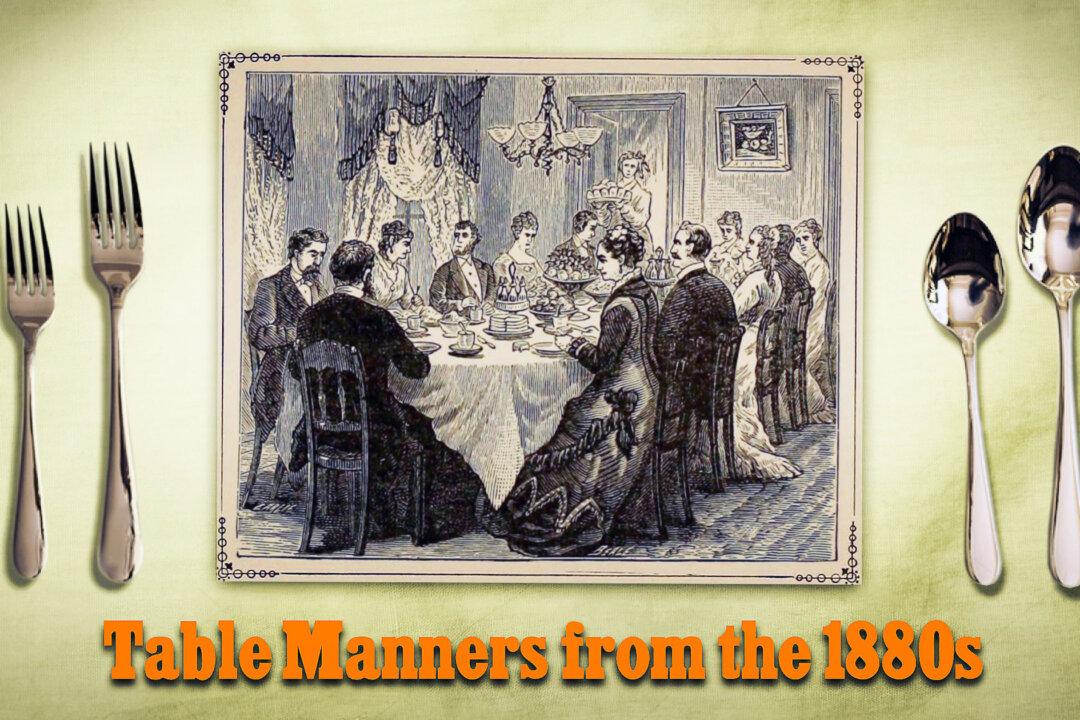The following is an excerpt from “Our Deportment,” a code of manners for refined society by John H. Young A.M., published in 1881. We offer it in hopes of promoting gentlemanly conduct among men—young and older—in today’s often unbalanced world.
Got Table Manners? Here Is the ‘Proper’ Dinner Party Conduct From an 1800s Manual on Etiquette

The Epoch Times
|Updated:






